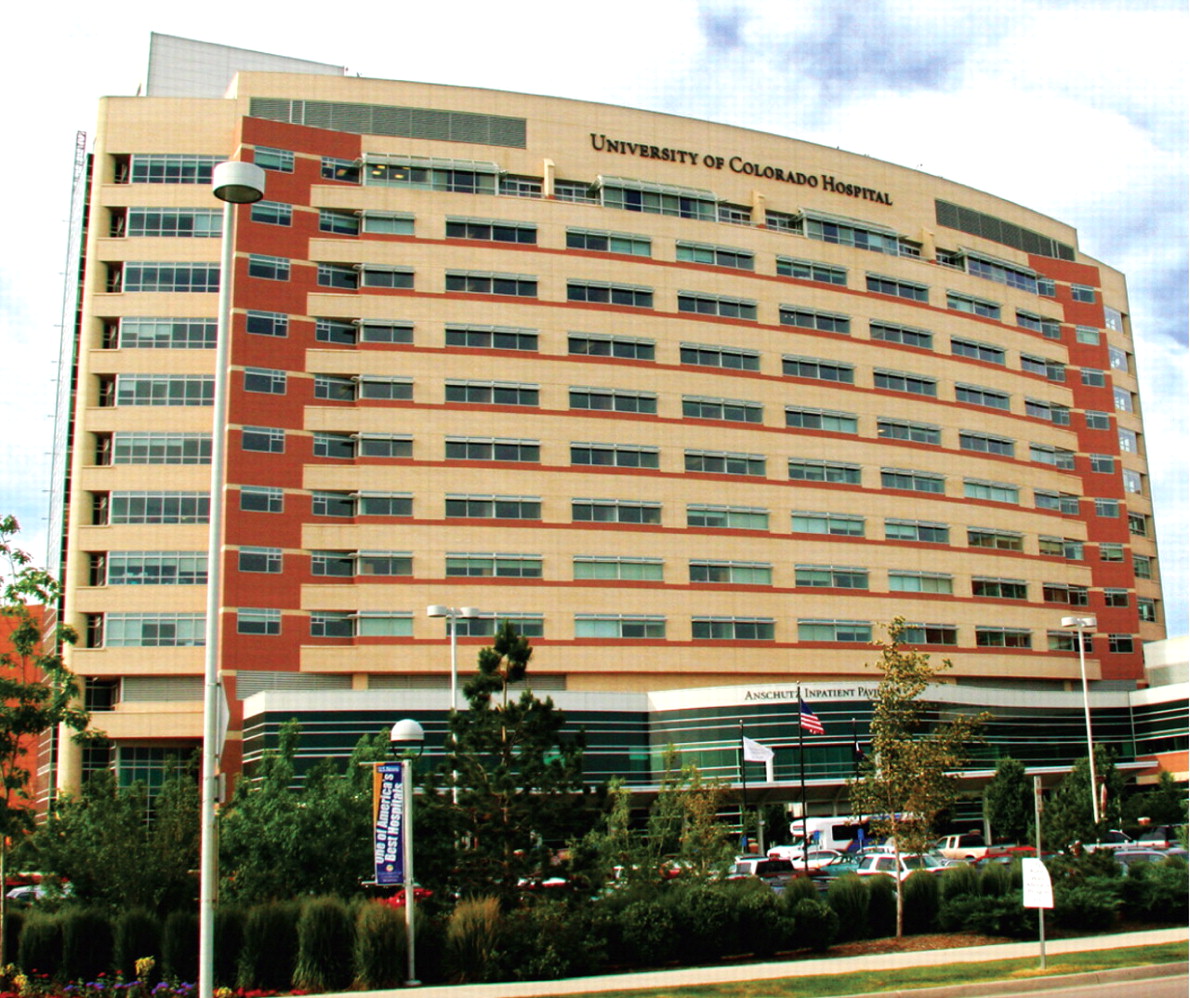University Shuts Hospital's Inpatient Psychiatric Unit
Joining the continuing national trend of shrinking availability of inpatient psychiatric care, the University of Colorado Hospital (UCH) stopped admitting adult psychiatric inpatients last month and will close its 22-bed psychiatric unit this month. The space will be remodeled to provide 18 general medical beds next spring (see No Adverse Effect on Residency Expected).
The facility (officially the University of Colorado Denver—Health Sciences Center Anschutz Inpatient Pavilion), located in the Denver suburb of Aurora, has been widely praised as a modern and technologically advanced facility. During the mid-1990s, the university, faced with a physical inability to expand its facilities and thus its services at its original health sciences campus in Denver, made the controversial decision to move the health sciences campus—including the hospital, outpatient services, and many of the affiliated academic programs—to the expansive grounds of the former Fitzsimmons Army Medical Center, which was closed in 1995.

The University of Colorado's Anschutz Inpatient Pavilion, part of a $1.5 billion 21st-century health sciences center, opened in 2004. Until a second patient tower can be built (2011 at the earliest), the hospital says it has no space for an adult inpatient psychiatric unit.
Photo Credit: University of Colorado Denver
However, space constraints once again became obvious, soon after the first of two planned patient towers opened in January 2004.
“From the day we opened our doors,” noted UCH Vice President for Clinical Affairs Greg Stiegmann, M.D., “we were overwhelmed with patients that, frankly, we didn't expect to have.” Stiegmann told Denver-area media that the 410-bed facility has been averaging around 85 percent occupancy for the last year. Over the last six months, an average of between 15 and 20 patients each day have been boarded in the facility's emergency department, waiting for medical or surgical beds to become available.
“There just aren't enough beds,” Stiegmann said after the pending psychiatric-unit closure was announced by the hospital's board on September 30, 2008.
In explaining the unit's closing, Jacque Montgomery, director of public and media relations for UCH, told Psychiatric News that “the 22-bed psychiatric unit has averaged about 16 patients per day [73 percent occupancy] and housed only 13 or 14 patients per day [64 percent occupancy] during the week the closure was announced.” During 2007, the hospital logged 735 adult inpatient psychiatric admissions, compared with total hospital admissions of more than 19,000.
The decision to close the unit was not one the university reached easily, Montgomery stressed.
A statement released by the hospital's Board of Directors emphasized,“ Our commitment to serving our community remains strong despite this difficult decision to close the inpatient psychiatric unit. Ever-increasing demand for hospital services, especially in the areas of cancer, transfers of the severely ill, and emergency services, has forced us to carefully evaluate the best way to care for the greatest number of patients. Hospital administrators and this Board have explored many other options and, after giving careful consideration to the overall bed shortage we have been experiencing, we support the decision to convert the inpatient psychiatric unit of our hospital.”
Montgomery noted that the hospital's board fully understands that the planned remodeling is only a temporary solution to the space concerns. However, construction of the hospital's second patient tower is not expected to get under way for at least two years. At that point, the hospital may be able to reopen an adult inpatient unit.
Meanwhile, the hospital's outpatient psychiatric services will continue, Montgomery added, and could possibly be expanded. In addition, the closure of the inpatient unit is not expected to adversely affect the University of Colorado School of Medicine's psychiatric residency program.
As expected, the closure announcement was not greeted warmly by many. Mental Health America of Colorado noted that research it compiled shows that there are more than 40,000 emergency-room visits each year in the seven-county Denver metropolitan area involving mental health crises. Of those, about half involve patients needing inpatient care. Yet the metro area only has about 250 available beds—of which the UCH unit represents roughly 10 percent.
Colorado's first lady, Jeannie Ritter, a long-time mental health advocate, has been working to find solutions to the state's psychiatric-bed crisis. She has been working closely with nonprofit agencies to raise the funds needed to lease space and open a 24-hour mental health crisis center on the grounds of Denver's former Beth Israel Hospital. Hoping to have the unit up and running by next month, Ritter had secured commitments by mid-November 2008 for less than half of the estimated $3.5 million needed.



